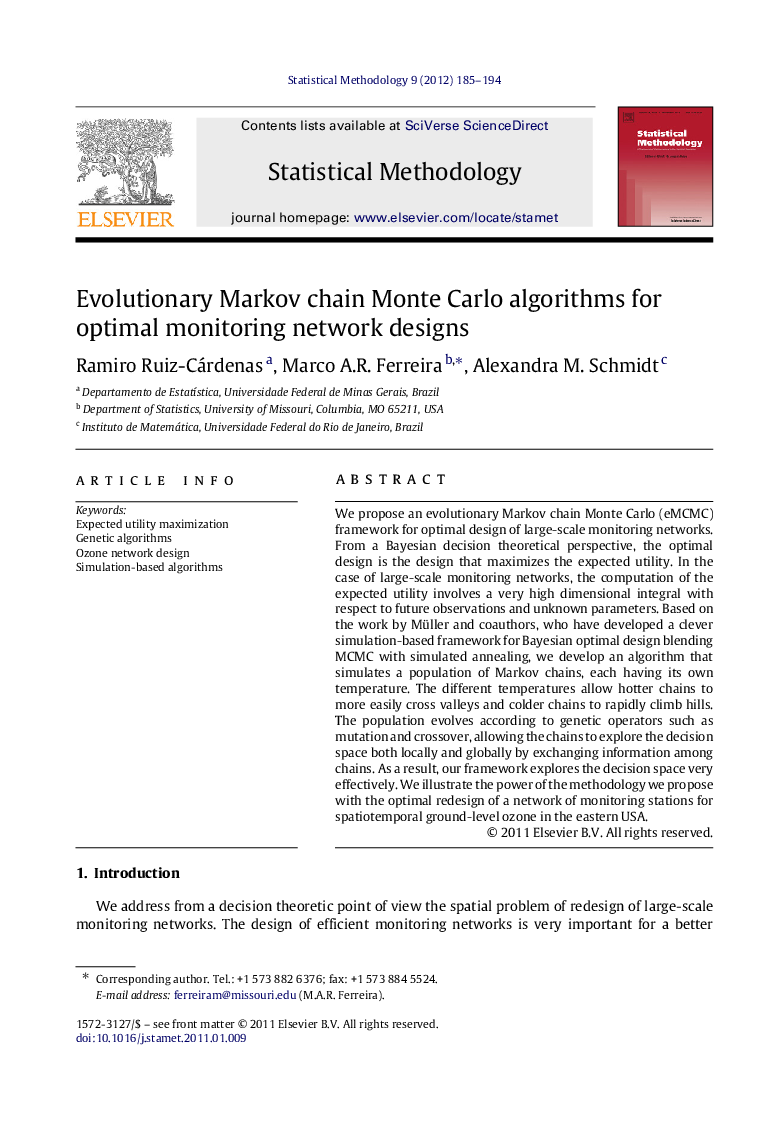| Article ID | Journal | Published Year | Pages | File Type |
|---|---|---|---|---|
| 1151194 | Statistical Methodology | 2012 | 10 Pages |
We propose an evolutionary Markov chain Monte Carlo (eMCMC) framework for optimal design of large-scale monitoring networks. From a Bayesian decision theoretical perspective, the optimal design is the design that maximizes the expected utility. In the case of large-scale monitoring networks, the computation of the expected utility involves a very high dimensional integral with respect to future observations and unknown parameters. Based on the work by Müller and coauthors, who have developed a clever simulation-based framework for Bayesian optimal design blending MCMC with simulated annealing, we develop an algorithm that simulates a population of Markov chains, each having its own temperature. The different temperatures allow hotter chains to more easily cross valleys and colder chains to rapidly climb hills. The population evolves according to genetic operators such as mutation and crossover, allowing the chains to explore the decision space both locally and globally by exchanging information among chains. As a result, our framework explores the decision space very effectively. We illustrate the power of the methodology we propose with the optimal redesign of a network of monitoring stations for spatiotemporal ground-level ozone in the eastern USA.
